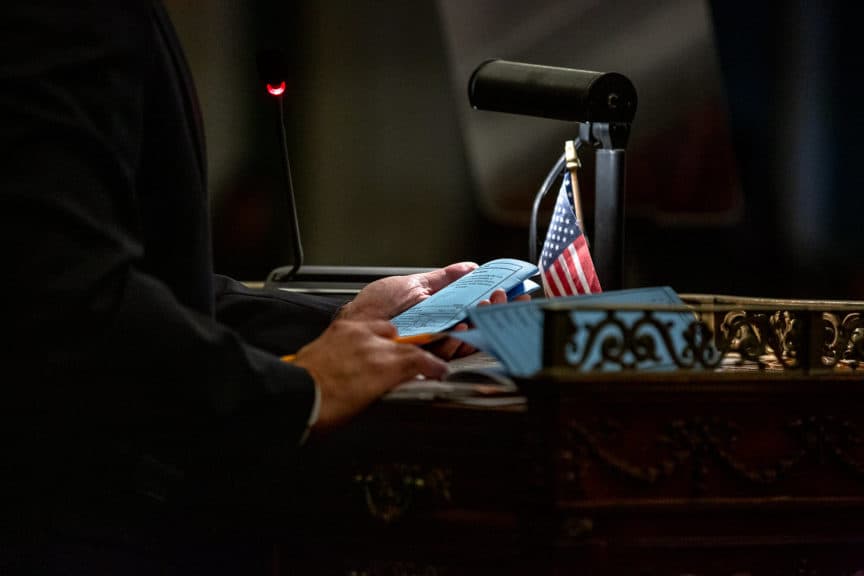PHILADELPHIA, PA – City Council today voted to approve a package of bills intended to generate $400 million in bond revenue to fund massive citywide investments in affordable housing, home repair, job creation, and neighborhood preservation.
Council voted to approve a 1 percent Development Impact Tax on residential construction, and legislation that reduces the real estate tax abatement for commercial construction by 10 percent. The development impact tax was approved by a 14-3 vote, and the commercial abatement reduction was approved, 17-0.
To generate broader support for the bills from the development community and Kenney administration, Council also voted to approve legislation that delays by 12 months the implementation of a rolldown in the residential portion of the real estate tax abatement. That bill passed, 11-6.
Revenues from the Development Impact Tax and commercial abatement reduction will be used to fund the Neighborhood Preservation Initiative, a $400 million program to address disparities magnified by the COVID-19 pandemic, including the need for more affordable housing, repairs to residents’ existing homes, support for first-time homebuyers, small business assistance, neighborhood business corridor revitalization, and the creation of a more inclusive workforce in Philadelphia, among other initiatives.
“The COVID-19 pandemic magnified economic and racial disparities that have existed for far too long in Philadelphia,” said Council President Darrell L. Clarke (5th District). “There is literally no time to wait. These needs are urgent. We need to act now to create a more equitable future for every Philadelphian and all our neighborhoods. Everyone must pay their fair share. I’m proud of Council for recognizing these needs – and acting on them.”
The Development Impact tax on residential construction will yield an estimated $9 million to $11.7 million in revenue per year, according to projections by Council’s budget and technical staff. The 10 percent reduction in the commercial tax abatement will generate an estimated $83 million in revenues for city services and schools over the next decade. The revenue from the reforms will help pay the debt service for the $400 million bond.
The bond program is also expected to catalyze a larger burst of economic activity — $2.5 billion-worth – and produce $71 Million in new tax revenues over the first 4 years. It is estimated that it will support over 14,700 jobs with $765 Million in wages.
“We can’t sit by idly and wait for someone to come to our rescue; we must be proactive,” said Council’s Majority Leader, Cherelle L. Parker (9th District), who introduced the legislation on Clarke’s behalf. “This legislation will generate close to a half billion dollars that will impact the lives of our most vulnerable residents who have been hurt most directly by the coronavirus. It will help those in poverty, prevent those living on the margins from falling further behind, and create sustainable jobs and assist small businesses – which need help the most right now.”
The Kenney administration testified last week in support of all three bills.
Advocates supporting more affordable housing in Philadelphia testified in support of the legislation today, particularly the 1% development impact tax. Advocates who support the complete elimination of the residential property tax abatement testified against Bill 200366, the legislation delaying the rolldown of the abatement by a year. Last week, most of the business and development communities – while professing to be for “equitable growth” in Philadelphia – testified against the development impact tax – the key financing tool for the Neighborhood Preservation Initiative.
Council President Clarke noted this week that over the past five years, the city has abated $700 million in property taxes owed to the city and School District on more than 14,000 properties.
“If people want to know why we’ve come to the construction and development industry and asked them to contribute, it’s because that’s where the money is,” Clarke said.
The bills now go to Mayor Kenney for consideration and signing.
# # #


